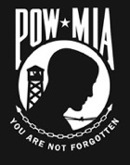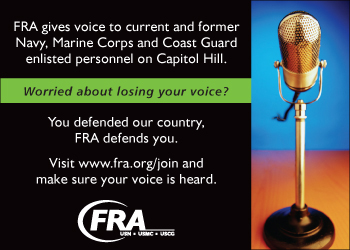 |
- OTHER SERVICES VOICES:
- MARINES
 - NAVY
 - AIR FORCE
 - ARMY
 - COAST GUARD
 - POLICE
|
An up close and personal interview with U.S. Navy Veteran and Togetherweserved.com Member:
CWO4 Ricardo V Vinas US Navy (Ret) (1962-1992)
WHAT INFLUENCED YOUR DECISION TO JOIN THE MILITARY?
 Unlike most TWS members, joining the US Navy in the Philippines was more of a calling ---a passion. Those veterans who were stationed in Sangley Point can attest to this fact. Economic conditions and poverty dictated Filipinos to look for work elsewhere. I was a working student before I joined the service. I had been asked often how I was able to join the US Navy. Under the provisions of Article XXVII of the Military Bases Agreement between the United States and the Republic of the Philippines of 14 March 1947, Filipino nationals were allowed to be recruited into the US Navy. So in 1962 I was one of 644 recruits who benefited from this program. It was funny but during the height of US Navy recruitment there were more Filipinos in the US Navy than the actual Philippine Navy. As a footnote, the Subic Base closure in 1992 ended this recruitment policy. Unlike most TWS members, joining the US Navy in the Philippines was more of a calling ---a passion. Those veterans who were stationed in Sangley Point can attest to this fact. Economic conditions and poverty dictated Filipinos to look for work elsewhere. I was a working student before I joined the service. I had been asked often how I was able to join the US Navy. Under the provisions of Article XXVII of the Military Bases Agreement between the United States and the Republic of the Philippines of 14 March 1947, Filipino nationals were allowed to be recruited into the US Navy. So in 1962 I was one of 644 recruits who benefited from this program. It was funny but during the height of US Navy recruitment there were more Filipinos in the US Navy than the actual Philippine Navy. As a footnote, the Subic Base closure in 1992 ended this recruitment policy.
WHAT WAS YOUR SERVICE CAREER PATH?
I had the best times of my life in boot camp. Here everybody was on equal footing. Then we graduated and went our separate ways. I became an SD not by choice, but as stipulated in the contract that I had signed at Sangley Point. I wanted to become a PN, SK or RM but those options were not open to foreign nationals.
Making the best of the situation and mindful of why I joined the US Navy I acquiesced and accepted my status. I told myself I would not only fulfill my obligatory service which I signed for, but would do my damn best wherever assigned. I was selected for Flag Allowance Billets and went on to work for several Admirals and COs ashore and afloat. This went on for more than 10 years. The promotion was rather slow for SDs during that time. Somebody had to either die or retire before anyone could put on their crow. Anyway I could sum up my Flag billet tours as enlightening, educational and a very rewarding experience. In retrospect, there were very few who had been selected to serve in this capacity and for the opportunity given I am extremely thankful and honored. but would do my damn best wherever assigned. I was selected for Flag Allowance Billets and went on to work for several Admirals and COs ashore and afloat. This went on for more than 10 years. The promotion was rather slow for SDs during that time. Somebody had to either die or retire before anyone could put on their crow. Anyway I could sum up my Flag billet tours as enlightening, educational and a very rewarding experience. In retrospect, there were very few who had been selected to serve in this capacity and for the opportunity given I am extremely thankful and honored.
My tour of duty on-board the USS TAWAKONI (ATF-114) in 1972 was the turning point of my career. After the ship leading CS's transfer(without a relief), the command just told me to fill his billet. Drawn into the fire I learned all the facets of the CS and SD operation on-board ship. My confidence level soared and for more than two years I thought I performed superbly for an SD1. I then applied and was accepted for the Associate Degree Completion Program (ADCOP) in 1974. I made E-7 while in school during the very first Chiefs selection boards. After graduation I reported aboard USS DULUTH (LPD-6) as S-2 Leading Chief. I was determined to excel in the new MS rating, after the now defunct CS/SD rating. I was so gung ho that I even exceeded my own expectations. The DULUTH was nominated and subsequently won the prestigious Ney Awards. My fortune continued and I was selected for E-8, and later re-assigned with the Navy Food Management Team in San Diego. Here I was involved with the first MS(in-rate) PQS in the Navy besides assisting various commands ashore and afloat. I applied for the Warrant Officer Program. In 1981, I was selected for E-9 and W-2 at the same time. I had put on my Master Chief and was in a dilemma on whether to accept W-2 appointment. Why not W-3? I was told that I was selected for Warrant as an E-8 applicant. There were many Master Chiefs who were discouraging me to switch to the Wardroom Mess, but my desire to become a Division Officer preempted all other considerations. I never regretted that decision.
Subsequent tour as a Warrant was no piece of cake either but I loved the challenges. Knowing what I had to do I tried to excel in every assignments. Having been assigned as an S-2 Division Officer aboard CVN-69 --- supervising 5 Chiefs and more than 180 MSs and FSAs was by far the most challenging and rewarding experience of my entire career. I met the challenge with par excellence --- so they say. IKE won that elusive NEY AWARDS under my direction. My succeeding tours of duty was a repeat of the same until my retirement at Naval Submarine Base, San Diego in 1992.
DID YOU PARTICIPATE IN COMBAT OPERATIONS? IF SO, COULD YOU DESCRIBE THOSE WHICH WERE SIGNIFICANT TO YOU?
No. However, the following scenario is worth sharing. Soon after IKE's departure from Livorno, Italy, the ship received orders to take up action in the Gulf of Sidra, off the coast of Libya. Colonel Khadafy, a long standing protagonist of the United States was backing the rebels trying to  overthrow the government of neighboring Chad. The eyes of the world watched as IKE's presence provided bothersome diversion to the North while Khadafy was pushing his will on a lesser equipped neighbor to his south. overthrow the government of neighboring Chad. The eyes of the world watched as IKE's presence provided bothersome diversion to the North while Khadafy was pushing his will on a lesser equipped neighbor to his south.
It was during the station-keeping in the Gulf of Sidra in August of 1983 that Khadafy made a threat to sink IKE (CVN-69) if we ventured inside the 300 mile limit claimed by Libya. The confrontation never materialized because the Libyans MIG-23's were swiftly intercepted by CVW-7's F-14 fighters without ever coming within sight of IKE. The MIG-23s turned tail and flew back to their airfields. The incident was averted without firing a shot. IKE's presence proved to be a formidable deterrent to the aggressive actions of Libya.
FROM YOUR ENTIRE SERVICE CAREER WHAT PARTICULAR MEMORY STANDS OUT?
Having attained the rank of a Master Chief stands out among others. Remember this verse? "Many are called, but few are chosen." It is the epitome of success in the CPO community. I was the happiest dude in the Navy when I found out. This is an elite team  of enlisted STARS and to have been selected as one of the few was such an honor --- even for a short while. But like they always say, once a Chief always a CHIEF. of enlisted STARS and to have been selected as one of the few was such an honor --- even for a short while. But like they always say, once a Chief always a CHIEF.
The other events, of equal magnitude, happened in 1963 and 1984 respectively. I was present on both occasions and witnessed its historical importance. In November 1963, Lt James H. Flatley III and his crew members made 29 touch-and-go landings and 21 full-stop landings and take offs in a C-130F Hercules aboard the Forrestal which set a record for the largest and heaviest airplane landing on a Navy aircraft carrier during that era. In 1984, then LT Flatley (now a Rear Admiral) was aboard USS Eisenhower (CVN-69) as Commander, Carrier Group Eight or Commander, Battle Force, Sixth Fleet (while deployed in the MED). In 1963, it was RADM Brown who commanded CARDIV FOUR (re-designated as CARRIER GROUP EIGHT in 1984). I was a lowly E-3 then aboard the Forrestal. Twenty-one years later, I was now aboard CVN-69, as a Supply Corps Warrant Officer (W2/W3) and S-2 Division Officer. It might pale in comparison with other feats and perhaps coincidental, nevertheless it was a very significant milestone in my Navy career.
OF THE MEDALS, AWARDS AND QUALIFICATION BADGES OR DEVICES YOU RECEIVED, WHAT IS THE MOST MEANINGFUL TO YOU AND WHY?
 Receiving my first Navy Commendation Medal as an enlisted man was the most meaningful to me. I didn't expect it and to have been recognized was just unforgettable and poignant. I knew there were many others more deserving. Receiving my first Navy Commendation Medal as an enlisted man was the most meaningful to me. I didn't expect it and to have been recognized was just unforgettable and poignant. I knew there were many others more deserving.
In the same context I cannot separate the NEY AWARDS Program and what it did to jump-start my Navy career. NEY AWARDS for S-2 Division is like winning the Superbowl if I may speak in hyperbole. But the real essence, besides being recognized by your peers and superiors alike, is self-satisfaction. From 1976 until my retirement in 1992, all the ships and shore stations I had been assigned to were nominated and won the NEY AWARDS. In all honesty I am proud to admit that there are moments of euphoria every time I think about old times.
WHICH INDIVIDUAL PERSON FROM YOUR SERVICE STANDS OUT AS THE ONE WHO HAD THE BIGGEST IMPACT ON YOU AND WHY?
 CDR Ronald J. Gallitz (SC) - - - for his moral conviction, trust and support, and for recognizing my ability to succeed in whatever I set out to do. He instilled in me pride, teamwork and professionalism within supply and the Navy as a whole. He stood out among others because of his patience and impartiality. His impact was felt not by me alone, but by those I supervised and mentored. This quid pro quo mentorship is deeply ingrained in the military today under the guise of leadership. CDR Ronald J. Gallitz (SC) - - - for his moral conviction, trust and support, and for recognizing my ability to succeed in whatever I set out to do. He instilled in me pride, teamwork and professionalism within supply and the Navy as a whole. He stood out among others because of his patience and impartiality. His impact was felt not by me alone, but by those I supervised and mentored. This quid pro quo mentorship is deeply ingrained in the military today under the guise of leadership.
And MS2 John Baker, for his outstanding work ethics. These two individuals left a positive impression which made me who I am today.
CAN YOU RECOUNT A PARTICULAR INCIDENT FROM YOUR SERVICE THAT WAS FUNNY AT THE TIME AND STILL MAKES YOU LAUGH?
There are two incidents that I can remember: After being sworn-in at Sangley Point, we traveled via Clark Air Base and San Francisco. After staying at Treasure Island overnight we boarded a night train that would take us to San Diego--all 27 Filipino recruits accompanied by ATN3 Jones. On-board the  train we couldn't sleep because we were so anxious to reach San Diego. In transit, everything looked strange or new to us. Next stop -- Santa Barbara. While some of us were resting or sleeping when all of a sudden one of the recruits (PABLO) yelled, "GET OFF, GET OFF! Everybody is gone! Let's all get off the train, NOW!" I got up and looked out the window and I didn't see any of my buddies on the station's platform so I was not worried. The train stopped, but as it started to leave I saw one guy carrying a seabag rushing to exit the train. Petty Officer Jones got worried and he initiated a headcount and by time he finished the train had already left the station. Lo and behold, there was one missing which I later found out as ARZAGA. Guess what happened next? Arzaga arrived one day later than we did as expected and there was a big fight at the barracks at RTC, San Diego when he arrived. From then on I try not to believe in everything I hear. train we couldn't sleep because we were so anxious to reach San Diego. In transit, everything looked strange or new to us. Next stop -- Santa Barbara. While some of us were resting or sleeping when all of a sudden one of the recruits (PABLO) yelled, "GET OFF, GET OFF! Everybody is gone! Let's all get off the train, NOW!" I got up and looked out the window and I didn't see any of my buddies on the station's platform so I was not worried. The train stopped, but as it started to leave I saw one guy carrying a seabag rushing to exit the train. Petty Officer Jones got worried and he initiated a headcount and by time he finished the train had already left the station. Lo and behold, there was one missing which I later found out as ARZAGA. Guess what happened next? Arzaga arrived one day later than we did as expected and there was a big fight at the barracks at RTC, San Diego when he arrived. From then on I try not to believe in everything I hear.
The other one happened in Norfolk, Virginia, my first duty station. One morning, during the early part of January 1963, I heard on the radio that all resident aliens living in US must register annually at the Post Office and they must do it before the end of the month. So, I went to the Post Office that same day filled out the necessary form and presented it to the clerk. I left the Alien Registration Number blank, because I had none. The clerk looked at the form then checked his records. The clerk kept looking at me somewhat puzzled then asked, "How did you get here to the U.S.?" You are here, but you are not supposed to be here (his exact words)!" I showed my military ID and then he said, "I believe you. Apparently you didn't pass through US Immigration." And he was right. All Filipino recruits exited the Philippines and entered US via Clark Air Base, Philippines bypassing the normal immigration protocol. The clerk after conferring with his supervisor then told me to go and that he would take care of it.
I later found out that there was a law passed on 26 September 1961 that waives the requirements for lawful entry into the US for permanent residence provided you are a service member and served honorably at any time from 23 February 1961 to the end of the Vietnam conflict. Instinctively, I took advantage of this law and became naturalized in 1970.
WHAT PROFESSION DID YOU FOLLOW AFTER THE SERVICE AND WHAT ARE YOU DOING NOW? IF CURRENTLY SERVING, WHAT IS YOUR CURRENT JOB?
After retirement I worked for NISE WEST and SPAWAR for another 10 years as a government contractor. I fully retired in 2002. I can honestly say that my wife of 44 years and I are enjoying the very essence of retirement - - - free time and what's left of  it in our lifetime. We try to visit the Philippines once a year to re-establish our roots and sometimes when our budget allows it, we travel elsewhere. But for the most part, our grandchildren fill the void. it in our lifetime. We try to visit the Philippines once a year to re-establish our roots and sometimes when our budget allows it, we travel elsewhere. But for the most part, our grandchildren fill the void.
Likewise I would be remiss if I did not mention our four children: Randy, Wayne, Richard and Kevin who made sacrifices also during my absence. Time that we could have shared, beautiful memories together was lost forever because of periods of extended deployment. Like most of you, this separation was unbearable at times not only to us, but most especially - - - to those we left behind. Up to this day I still wish to turn back the clock so I could recapture and make up for lost time.
WHAT MILITARY ASSOCIATIONS ARE YOU A MEMBER OF, IF ANY? WHAT SPECIFIC BENEFITS DO YOU DERIVE FROM YOUR MEMBERSHIPS?
I have a very short list: MOAA and FRA. Not an active member to both. I like the USAA by the way and wish it were recognized as a military association.
HOW HAS MILITARY SERVICE INFLUENCED THE WAY YOU HAVE APPROACHED YOUR LIFE AND CAREER?
 I am a very disciplined individual, so I fit the mold when I joined the service. Yes, military life has influenced me tremendously because it improves my outlook on life. It broadens my horizon and uplifts my perception on how I see myself and others. I am a very disciplined individual, so I fit the mold when I joined the service. Yes, military life has influenced me tremendously because it improves my outlook on life. It broadens my horizon and uplifts my perception on how I see myself and others.
The fact is we never truly left the service. We will always be in the Navy. The way we think, talk and even dream. It shows when we tell jokes and make important decisions in our life. You do not see it, but you can feel that it is there, whether we like or not, whether we admit it or not. Like caffeine, it is already in our system. The Navy will remain with us in good and bad times, and throughout our golden years and beyond. I hope we have inspired future generations to serve and maintain the status quo - - - leaving the same legacy exactly as we left them.
WHAT ADVICE WOULD YOU HAVE FOR THOSE THAT ARE STILL SERVING?
 I would say to them to hang on and stay the course. The leadership training that you will acquire has been tested and proven many times over; that the military is the only institution that is colorblind where you can pursue your dreams and ensure fair competition if you work hard and persevere. There are no hindrances but yourself, and that there is no other calling worth pursuing. I would say to them to hang on and stay the course. The leadership training that you will acquire has been tested and proven many times over; that the military is the only institution that is colorblind where you can pursue your dreams and ensure fair competition if you work hard and persevere. There are no hindrances but yourself, and that there is no other calling worth pursuing.
I would also remind them of President John F. Kennedy's famous words, "I can imagine no more rewarding a career. And any man who may be asked in this century what he did to make his life worthwhile, I think I can respond with a good deal of pride and satisfaction: I served in the United States Navy." And I am equally convinced that all of us here at TWS share the same sentiments.
IN WHAT WAYS HAS TOGETHERWESERVED.COM HELPED YOU MAINTAIN A BOND WITH YOUR SERVICE AND THOSE YOU SERVED WITH?
 Here I was able to reconnect with old shipmates, and got acquainted with new ones. Most of all I was able to relive my Navy stories the way I want to remember them. Here I was able to reconnect with old shipmates, and got acquainted with new ones. Most of all I was able to relive my Navy stories the way I want to remember them.
TWS has kept my sanity day in and day out. By just browsing, lurking if you will, I was able to smile, sometimes smirk, but most of the time reminisce the bygone days. In fact I started drinking coffee again when I saw one CSC profile because I thought I was still on the mess decks doing my NAVSUP 1090. That's how powerful this website is. It's addictive, but therapeutic at the same time.
|
|
|
Share this Voices on:




|
|
TWS VOICES
TWS Voices are the personal stories of men and women who served in the US Military and convey how serving their Country has made a positive impact on their lives. If you would like to participate in a future edition of Voices, or know someone who might be interested, please contact TWS Voices HERE.
This edition of Navy Voices was supported by:

Navy.Togetherweserved.com
For current and former serving Members of the United States Navy, TogetherWeServed is a unique, feature-rich resource enabling Naval personnel to re-connect with lost Shipmates, share memories and tell their Navy story.
To join Navy.Togetherweserved.com, please click HERE.
|
|